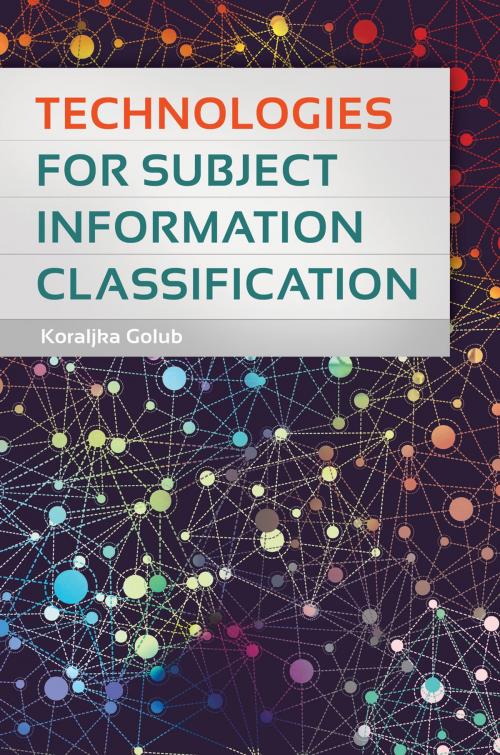Subject Access to Information: An Interdisciplinary Approach
Nonfiction, Reference & Language, Language Arts, Library & Information Services, Study & Teaching| Author: | Koraljka Golub | ISBN: | 9781610695787 |
| Publisher: | ABC-CLIO | Publication: | November 21, 2014 |
| Imprint: | Libraries Unlimited | Language: | English |
| Author: | Koraljka Golub |
| ISBN: | 9781610695787 |
| Publisher: | ABC-CLIO |
| Publication: | November 21, 2014 |
| Imprint: | Libraries Unlimited |
| Language: | English |
A much-needed analysis of the intersection of information organization and technology, this interdisciplinary work encompasses both current and potential methods of organizing information by subject. It examines traditional approaches as they are used in the online environment and explores computer science approaches, such as ontologies and automated tools for subject information organization. Entries review the advantages and disadvantages of the two approaches, showcase their applications today, and project what those applications may be in the future.
Content ranges from background on the importance of information organization in general to the importance of information organization by subject in particular. Traditional and modern knowledge-organization systems are covered, as are technological standards, selected topics in automated tools, and interdisciplinary research and cooperation. By tackling varied approaches, the work provides you with an appreciation of the tools—and an understanding of common aims.
A much-needed analysis of the intersection of information organization and technology, this interdisciplinary work encompasses both current and potential methods of organizing information by subject. It examines traditional approaches as they are used in the online environment and explores computer science approaches, such as ontologies and automated tools for subject information organization. Entries review the advantages and disadvantages of the two approaches, showcase their applications today, and project what those applications may be in the future.
Content ranges from background on the importance of information organization in general to the importance of information organization by subject in particular. Traditional and modern knowledge-organization systems are covered, as are technological standards, selected topics in automated tools, and interdisciplinary research and cooperation. By tackling varied approaches, the work provides you with an appreciation of the tools—and an understanding of common aims.




![Cover of the book Ethnic and Racial Minorities in the U.S. Military: An Encyclopedia [2 volumes] by Koraljka Golub](https://www.kuoky.com/images/2013/january/300x300/9781598844283-ORhA_300x.jpg)

![Cover of the book Gangland: An Encyclopedia of Gang Life from Cradle to Grave [2 volumes] by Koraljka Golub](https://www.kuoky.com/images/2018/october/300x300/9781440844744-ZPo9_300x.jpg)

![Cover of the book Climate Change: An Encyclopedia of Science and History [4 volumes] by Koraljka Golub](https://www.kuoky.com/images/2013/january/300x300/9781598847628-miiI_300x.jpg)






